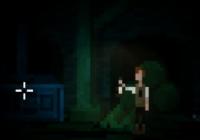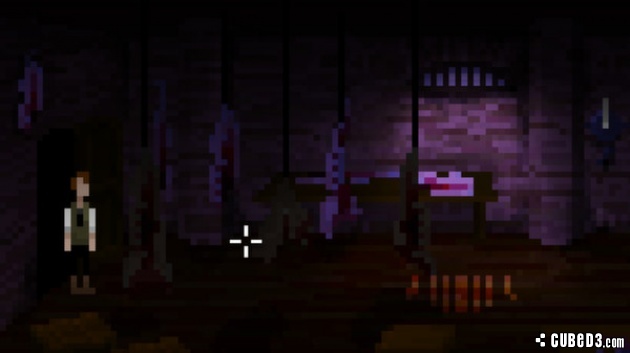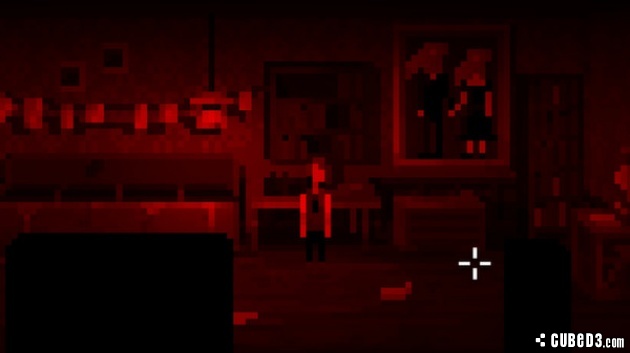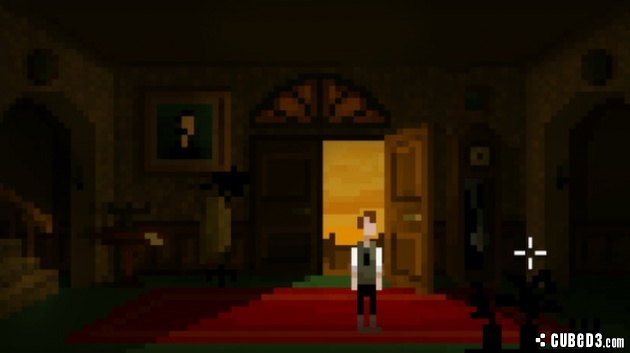The Last Door - Collector's Edition (PC) Review
By Jordan Hurst  06.02.2015
06.02.2015

To start with, it is best to get the most pressing question out of the way: yes, The Last Door is better than it looks. That may not be saying much because it looks like all of its assets were resaved as jpegs 30 times over, but the folks at The Game Kitchen have managed to deliver a legitimately creepy horror experience, regardless. The whole thing feels like the developers testing themselves, trying to make the best possible game using 25-year-old production values and genre conventions. They have succeeded by most accounts but was such a constrained endeavour really worth pursuing?
It becomes painfully obvious early on that if the main character was renamed Randolph Carter, The Last Door could easily pass for Lovecraft fan-fiction. Combined with its boilerplate point-and-click gameplay, puzzles are solved by examining, collecting, and combining items, and then using them on other objects in the environment; it's certainly not a ground-breaking title. Even the recurring imagery (murders of crows, conspicuously ticking clocks, and a veritable landslide of crucifixes) is pretty tired horror fare. Considering the Steam library is already drowning in point-and-click revivalists and wannabe 'Let's Play' sensations, it is little wonder the game turned to Kickstarter for funding.

What makes The Last Door the "best possible game" given its circumstances, though? The simple answer is that its developers truly understand both the videogame and literary genres they are working in. On the gameplay side of things, streamlining is the order of the day. Not quite to The Walking Dead levels, where the genre title is essentially a formality, but certainly enough to qualify as a modernisation. For one thing, room transitions that have been attempted previously can be skipped, eliminating much of the tedium of backtracking. Additionally, examining and interacting with objects are combined into one single command, removing the habit that plagues most graphic adventures of clicking everything twice. Similarly, unlike most of its peers, the majority of the game's puzzles follow a genuinely rational thread of logic. In most games, simplicity doesn't lead to satisfaction, but since the usual alternative for games of this ilk is mandatory walkthrough detours, it was definitely the right choice here.
The game has an episodic structure originally enabled by an interesting monetisation model: only the most recent episode required a purchase, while past ones could be downloaded for free. Although this review is of the Collector's Edition (the first four episodes packaged with some extra scenes), the structure is still present, and it was a wise choice from a gameplay perspective. Since each episode features an entirely self-contained setting and overarching goal, puzzle implements and solutions are never any further than two rooms away from each other. Once again, compared to other games of its kind, where puzzle pieces can be anywhere, this is a welcomed change. Furthermore, at about 45 minutes apiece, every episode's level and puzzle designs feel neither padded nor cramped.

As for the game's literary genre, the developers seem fully aware of the strengths and limitations of Lovecraftian horror. Specifically, that fear, in this case, is not born of shock, gore, or even a sense of immediate danger, but by unfathomable concepts and uncanny situations. It's for this reason that the game is still very shiver-worthy despite its comically simple art style. The plot concerns Jeremiah Devitt, a largely unremarkable protagonist who, following the suicide of a childhood friend, attempts to uncover what secrets his friend knew, and how that knowledge relates to events in both of their pasts.
While the premise is solid, the crux of the game's horror value rests with its mysterious characters (who range from subtly "off" to violently insane) and the explicit knowledge that there is some sinister force, both literally and figuratively, behind the events being shown. In fact, these two sources of fear seem to feed off each other; the awareness that something evil is out there makes every character a target of suspicion, and the bizarre behaviour of every character serves to reinforce the potential power of said evil force. Around once an episode or so, a hallucinatory jump scare rears its head, but those are merely accents along the steady crescendo of dread that is the game as a whole.

Unfortunately, grouping only the first four episodes into this Collector's Edition probably harmed the narrative overall. Since these are officially considered as Season One, it would be expected that some kind of story arc would be completed - otherwise, what's the point of dividing them into seasons? This question was apparently not asked of the developers, because the fourth episode merely ends on a cliffhanger with about a dozen potential sequel hooks dangling in the background. Ironically, this is likely how Lovecraft or Poe would have ended the story - with a horrifying, apparently inevitable event poised to strike sometime after the last words of dialogue. Neither of those authors would have branched out their plots into a web of tiny dead ends before doing so, however. In fact, the only real draw of the Collector's Edition is the handful of new scenes that exist solely to announce what loose ends will not be explored in future episodes.
For all of its structural problems, though, The Last Door is still quite good at what it's trying to do, in other words make it hard for players to sleep at night. The audio is a huge component of this. Aside from the occasional overwrought piece, the soundtrack is a phenomenally haunting series of mournful melodies and subtle dissonances. Most importantly, its scripted use accentuates narrative moments without cutting away from gameplay. The sound effects, too, are wonderfully refined and atmospheric. Finally, despite all the jokes that can be made at the expense of the visuals, the characters' featureless faces can be genuinely disturbing, which, given the genre, was almost definitely intentional. Still, an art style where objects have visible borders would have been more conducive to point-and-click gameplay.

Cubed3 Rating
Good
For anyone that really enjoys cosmic horror and can't get enough of it, The Last Door is definitely worthwhile. For everyone else, a recommendation comes with a few caveats: the story is decidedly incomplete until future episodes are released, and there's almost nothing here that genre fans (and probably even non-fans) haven't seen before. On the other hand, it's got strong puzzles, poignant atmosphere, and surprisingly modern game design. If nothing else, the legitimate fright it elicits with nothing but a few handfuls of oversized pixels makes it a great case study on how little correlation there is between a game's budget and its ability to engage.

![]() 6/10
6/10
![]() 0
(0 Votes)
0
(0 Votes)
 Out now
Out now  Out now
Out now  None
None  Out now
Out now Comments
Comments are currently disabled

 Sign In
Sign In Game Details
Game Details Subscribe to this topic
Subscribe to this topic Features
Features





 Top
Top

